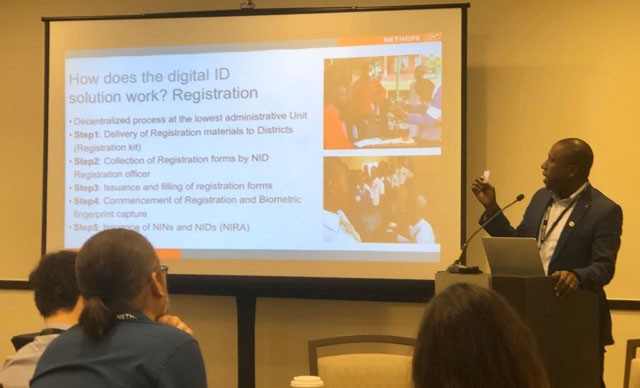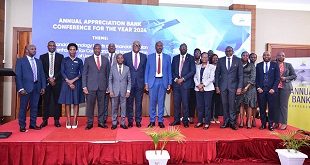
Kampala, Uganda | THE INDEPENDENT | The use of the National Identity Card (ID) as the officially recognized identifier has helped facilitate accountability in government. A cost-benefit analysis study done by researchers at the Resilient Africa Network has found that the government has so far saved up to USD 51 million from integrating the ID data in their system.
In this study, which was done for a period of two years, researchers randomly sampled 2,892 adults from different parts of the country in addition to conducting interviews with government officials and agencies that benefit from the use of IDs such as banks.
From the data, they received from the Ministry of Gender where they looked mainly at the youth livelihood programme, Dr Roy Mayega who was the Principal Investigator says that they generally realized that for every one US dollar that government invested in the exercise, the return on investment was high at 35 cents.
The exercise that started in 2014 cost USD 56 million for both pre-enrollment activities, card issuance and post enrollment activities.
In an interview with URN on Friday, Dr Nathan Tumuhamye, the Director of Eastern Africa RILab, one of the researchers said that of the USD 51 million, about USD 30 million is coming from the reduction in administrative duplication.
From the payroll and pension management system alone, the researchers found that the government saved USD 12 million in the first year of the cleanup.
While commenting on the findings of the study, the Secretary to the Treasury Keith Muhakanizi said with the payroll cleanup government management to eliminate more than 8,000 ghost workers whom they had been paying in error due to the leakages in the system.
He said that the government is planning to further enhance the ID data to increase tax revenue, first, by ensuring that everyone eligible has an ID. Currently, the researchers found only 79 per cent of eligible persons have IDs yet 94 per cent applied.
Now, Mayega says if the government is to ensure universal coverage of the ID, they need to correct irregularities ranging the hurdles in replacement once the document is lost or even correcting errors made at first issuance.
He said the majority of respondents said the document is a must-have as it aids in not only economic and financial inclusion but in facilitating civil transactions and in participating in democratic processes such as elections.
80 per cent reported benefits of quickening registration for SIM cards and mobile money, some 47 per cent said schools required them to have an ID in order to have their children enrolled whereas some reported using the ID as collateral security to secure quick loans from SACCOs.
Mayega also notes that 69 per cent of the people reported guarding their IDs and keeping them in a secret place for fear of unclear processes regarding the safety of their personal data and if there are avenues of quashing someone’s data at NIRA in case it is stolen or used in committing the crime.
When this was put to Christopher Kantinti, the Manager ICT at NIRA he said they are still working on the processes of relinquishing data in case another copy is made or when someone dies.
“When the owner of an ID dies. This death is reported to NIRA by Ministry of Health if it is in a hospital. If it is in the community, then local government should report it. We are still working on this such that cancellation of the person from the register then happens”.
To date, NIRA has issued up to 15million ID cards and some 10 million National Identification Numbers (NINs) for those below 16 years of age who don’t qualify for a card. However, up to 29 million applications for IDs have been made to the authority.
********
URN
 The Independent Uganda: You get the Truth we Pay the Price
The Independent Uganda: You get the Truth we Pay the Price


